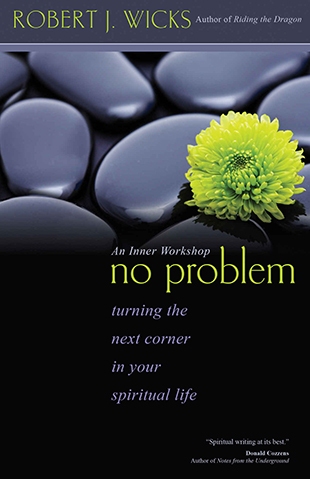Robert J. Wicks is on the faculty of Loyola University Maryland. He has taught in universities and professional schools of psychology, medicine, social work, nursing, and theology. He is the author of more than 50 books including Riding the Dragon.
Wicks describes this paperback as a spiritual formation resource consisting of 20 lessons, 3 doorways, and 30 daily exercises. Behind this structure is the ideal of living in peace and joy and sharing it with others. Early in the book, Wicks defines the function of a virtue that is often hard to comprehend and even more difficult to practice:
"Humility clears the lens in which we view ourselves and allows us to enjoy the gifts we have been given and to share them freely, not being concerned about their limits. Instead, we do what we can, enjoy what we have been given, and let God take care of the rest."
Other qualities that are important in our spiritual maturation are inner simplicity, awe, reflectiveness, and a willingness to let go. It's also good to expand your rituals of reverence, to discover your gifts and growing edges, to emulate the right persons to follow on the path of grace, and to establish a "little rule" of your own.
Wicks probes these three doorways to a meaningful spiritual and psychological life: (1) presence to others, (2) presence to self, and (3) presence to God. The last section of No Problem revolves around a month's worth of questions and exercises for a "workshop of virtue." Here is one example:
"Provide some examples of ways you can relax your grasp on life so you can enjoy everyone and everything that comes your way instead of being possessed by them."
